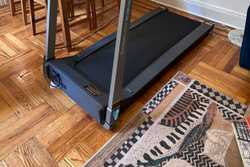- Battery: 500 watt hours
- Weight: 53 pounds
- Top speed: 28 mph
- Range: 20 - 50 miles
- Price on publish: $3,299
Best Electric Bikes: From Commuter to Cruiser E-Bikes
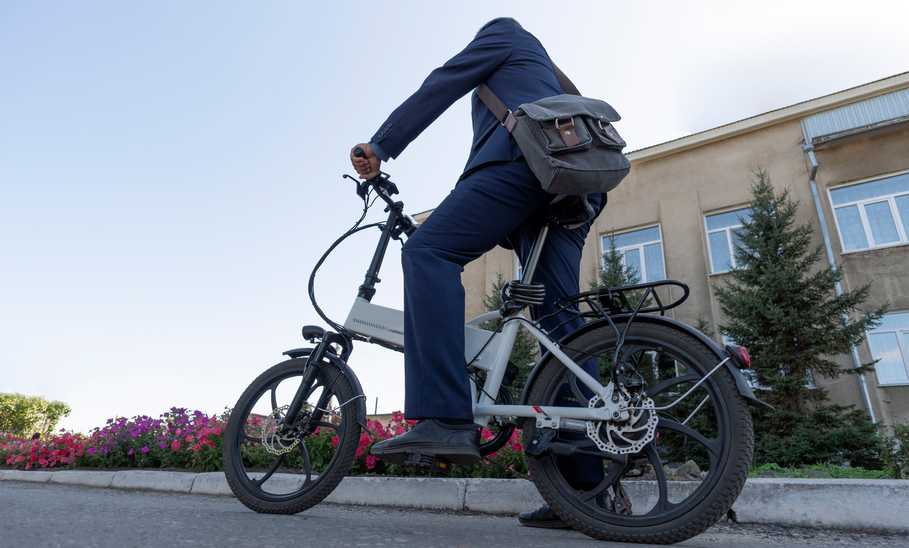
Our evaluations and opinions are not influenced by our advertising relationships, but we may earn a commission from our partners’ links. This content is created by TIME Stamped, under TIME’s direction and produced in accordance with TIME’s editorial guidelines and overseen by TIME’s editorial staff. Learn more about it.
Sick of making your legs do all the work? Maybe it’s time to give yourself a little motorized assistance. Whether it’s commuting, mountain biking, or hauling groceries around, there’s an e-bike for every situation, so we’ve compiled the best electric bikes in each category. Grab your helmet and e-bike lock and let’s ride.
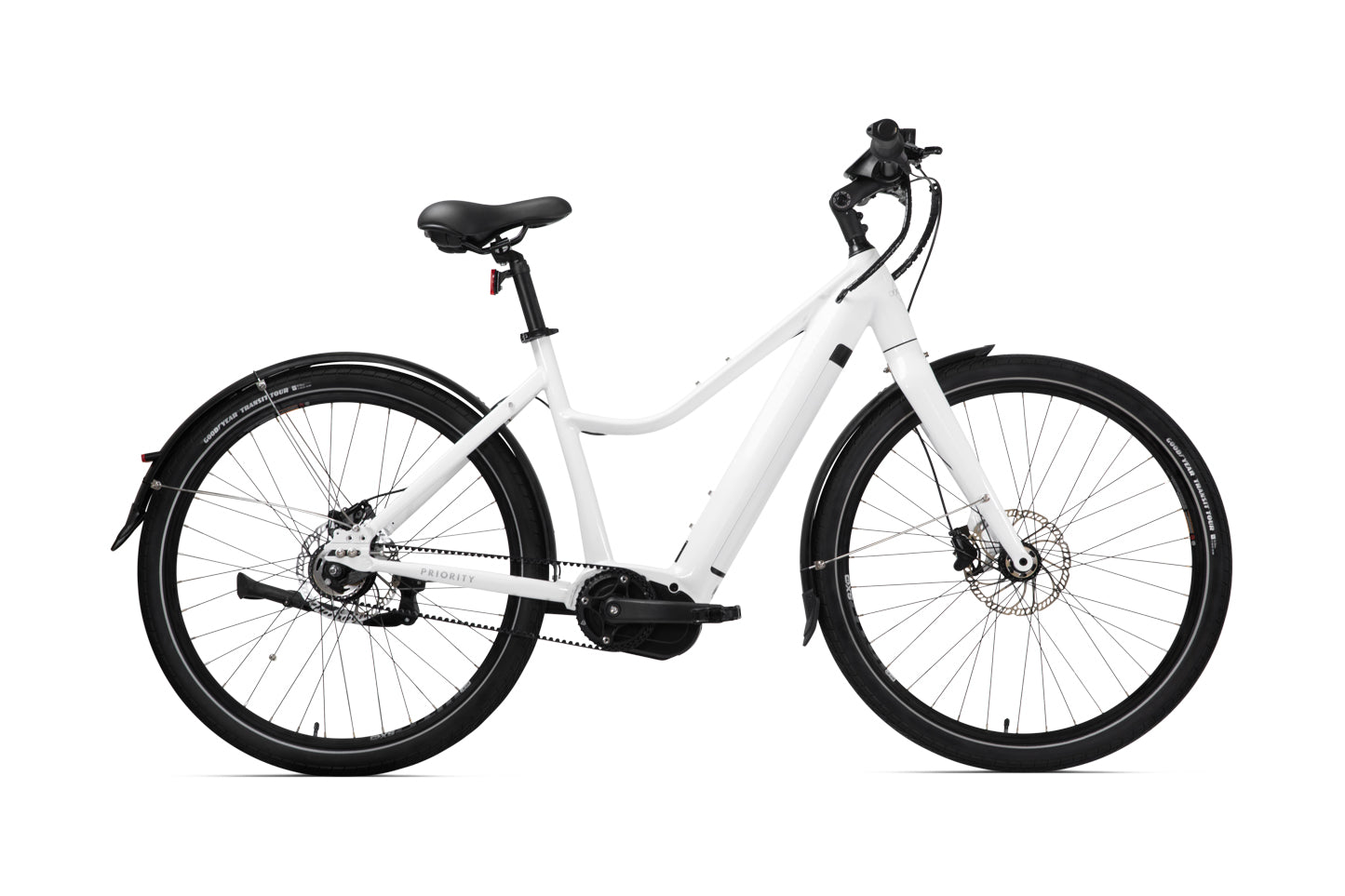
If your place of work is within cycling distance, a commuter-friendly e-bike can be the ideal way to skip daily traffic jams or public transport. Tyler Swartz, co-founder of E-bike Commuting, suggests taking a look at Priority’s Current, a Class 3, mid-drive bike with a 500-watt motor and all-weather, hydraulic disc brakes, front and rear lighting for better visibility, and a comfortable, mid-step frame. For even more choices in this category, read our picks for the best electric commuter bikes.
Read the full review: Priority Current e-Bike Review: A Must-Own for Long Commuters
A comfortable bike for daily riding, with enough speed and power to zip through your commute.

E-bikes can be prohibitively expensive, and while you mostly get what you pay for, there are a few more wallet-friendly options that still get the job done. Chris Nolte, founder of Propel Electric Bikes, recommends the Velotric T1 ST: “It’s a lightweight, simple e-bike with pedal assist and throttle,” he says. “A great urban bike for those that want the ability to easily carry up stairs.” And at just $1,299, it’s considerably cheaper than most.
An entry-level e-bike with decent range and good portability.
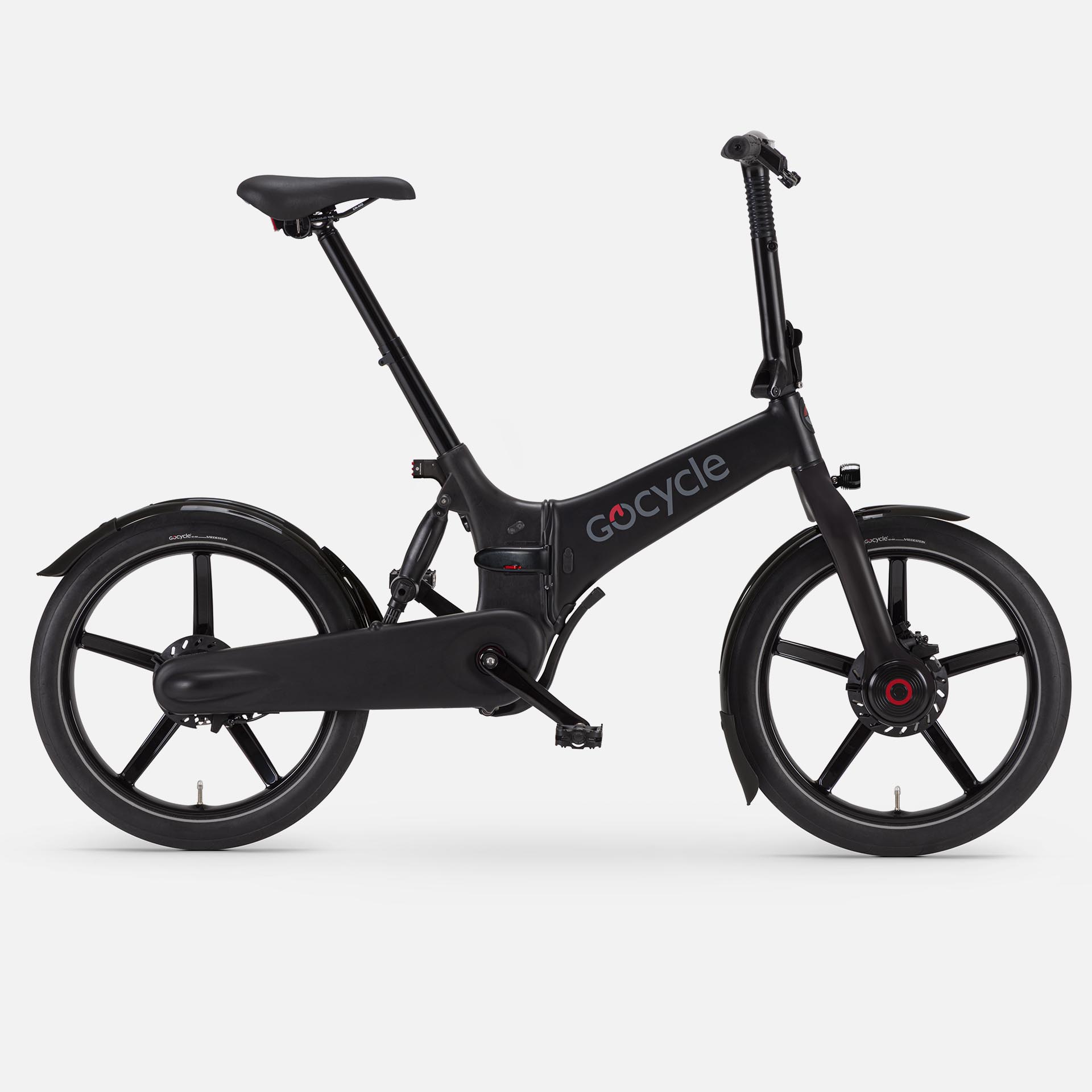
It’s no good getting an e-bike if you don’t have the space to store it, either at home or at work (or on the bus if you don’t feel like riding in the rain). A folding bike can be a great compromise, and Swartz highly recommends the Gocycle G4i, citing its speed, comfort, and portability (it weighs just 33.7 pounds). He also mentions that despite being 6’2”, the bike feels large enough for him and very natural to ride.
Lightweight and portable, this is an ideal bike for commuters looking to maximize space.
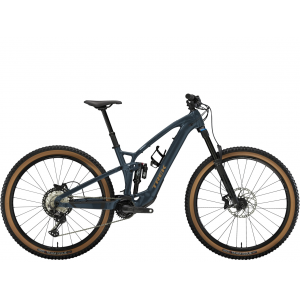
Mountain e-bikes are generally on the more expensive end of the e-bike price spectrum, but you’ll be glad you made the investment next time you’re faced with a steep climb. Stuart Sundell-Norlin, associate category merchandise manager (bikes) at Christy Sports, recommends Trek’s Fuel EXe, an aluminum mountain bike with a quiet 360 Wh motor that discreetly kicks in when you need it. You also have the option of adding a second external battery, which fits into any standard water bottle holder and will extend the bike’s range by up to 40 percent.
A classic-looking mountain bike with all the extras you’d expect from a top of the line e-bike.

Hauling stuff on your bike can be an unpleasant experience, leading to tired legs, a wobbly bike, or both. The cargo e-bike category takes a lot of the pain out of the experience, with heavy-duty bikes designed to carry loads on either the front or back. The RadWagon 4, recommended by Swartz, carries up to 350 pounds (or two passengers) on its elongated frame, while its low center of gravity ensures stability even when fully loaded (the bike, not you).
Read the full review: RadWagon 4 Review: An Affordable Family Cargo E-Bike
A workhorse on two wheels that’ll get you–and your belongings–where you need to go.
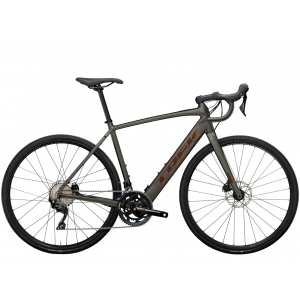
If you’re looking for something for going far and fast on a paved road, then you’re looking for a performance road e-bike. Max Renson, general manager at Upway, says that Trek’s Domane+ is the way to go, adding that the entry-level machine is “one of the best-selling models of e-road bikes.” With the option to extend your range with a second 250 Wh battery, this will deliver you to your destination in comfort and style.
A sleek, quiet e-bike with traditional road bike stylings that truly gives you the best of both worlds.

Not every bike ride needs to be a gnarly bump-fest through the forest or a tiring slog through traffic. Sometimes, you just want to cruise, baby—and the best way to do that, naturally, is on a cruiser. Swartz advises checking out Priority’s E-Classic Plus, which he praises for its well-designed frame, high-quality motor, comfort, and overall enjoyable riding experience.
Perfect for shorter rides on flat roads, this is a good-looking bike that gives a smooth ride.

Even some of the best folding electric bikes—which are designed, above all else, for portability—can be heavier than you’d think, so it’s refreshing to find an e-bike that comes in under 30 pounds. “Created by Tour de France champion Greg LeMond, this bike has the lightweight performance of a race bike, with a little extra power to make you feel like a champion,” says Nolte.
An extremely attractive and lightweight bike that might honestly be a little too nice for the slog of a daily commute.

Recommended by Renson, this hard-working cargo bike has a range of up to 80 miles if you choose the dual battery model, while still hauling a load of up to 200 pounds on its option-heavy modular rack system. Since it’s a Class 2 e-bike, you can enjoy letting the motor do all the work, too, so you won’t even have to pedal that full 80 miles.
A long-range, heavy-duty bike with a ton of customization options.
Before anything else, figure out exactly what you need the bike for, and where you’ll be riding it. “It’s important to start your search with what type of riding you plan to do and what purpose or mission you hope your e-bike will serve,” says Haley Ludwick, communications manager at Trek. “From there, you can determine a category and identify which elements are important.”
"For first-time riders, we would always suggest popping into your local e-bike shop to see the different styles and options available,” says Bosch-certified e-Bike mechanic Pete Mckendrick of Paul's Cycles. “Different models are available in different frame shapes and styles. You might want to consider a trapeze style or step-through frame to make getting on and off the bike much easier. If you’re looking to take your e-bike on holiday in a campervan, there are great folding e-bikes, or compact e-bikes with novel features like folding pedals and quick-release handlebar stems, to make storing them in small spaces much easier."
“Price is often a factor, but value is important to consider, too,” says Claudia Wasko, vice president and general manager of Bosch E-bike Systems, Americas. “Premium-quality e-bikes from reputable brands come with a higher price tag than lower-quality e-bikes (often mail order and with no real service solution, especially when it comes to the need for replacement parts following the purchase).”
She continues: “As with most things, you often get what you pay for with e-bikes. There are myriad differences between different types of e-bikes and e-bikes at different price points; durability, serviceability, performance, resale value, and, importantly, safety should be top-of-mind.”
“There are several different e-bike platforms on the market, with different battery sizes and displays to meet different price points,” says Mckendrick. “If you’re looking to ride long distances, then a 625W or 750W battery will provide ample power for epic adventures, but they do come at a greater cost. So if you’re looking to just ride short distances to work, don’t be put off by a smaller battery as it will still provide plenty of range but at a more affordable price.”
“Weight may or may not be a factor, depending on how you plan to use your e-bike,” says Wasko. “Most e-bike motors provide plenty of power to compensate for the additional weight of an e-bike motor and battery. Therefore, the weight of an e-bike usually doesn’t affect performance or riding enjoyment.”However, he adds that If you’re planning to lift your bike onto a bike rack or you regularly have to carry your bike up stairs, weight might be a bigger factor in your decision. “In that case, you might consider a lightweight system.”
“Pedal-assist e-bikes are available in two types,” explains Wasko. “Class 1 e-bikes have a maximum supported speed of 20 mph—this means that the motor will supplement the rider’s power up to 20 mph. A rider can pedal beyond that speed, but the electric motor will not aid the rider above 20 mph. A Class 3 e-bike will assist riders up to 28 miles per hour.” There are also Class 2 e-bikes, which are similar to Class 1 in that they won’t assist you above 20 mph, but the difference is that you can use the throttle even when not pedaling. “Each class of e-bike comes with specific benefits and a specific set of rules for safe operation,” adds Wasko.
Be sure to do your research and check you’re able to ride the bike you’re considering in your area. “A topic to consider when buying an electric bike are the state and federal e-bike regulations,” says Ludwick. “E-bikes use a class system from 1 to 3 and it’s important to understand how these regulations might impact your e-bike purchase and your ride.” For more information on these, check out our guides on how to choose an electric bike and how fast electric bikes go.
“Regardless of your cycling skill level and type of riding, e-bikes open up new doors,” says Ludwick. “E-bikes make commutes sweat free, replace car trips, help ease all the small hassles of getting around, flatten climbs and ease headwinds, and allow riders to keep riding longer.”
“E-bikes are typically heavier and more complex than traditional bikes,” warns Ludwick. “Some e-bikes exceed car rack weight limits and, even with walk assist modes, can be difficult to carry up apartment steps, etc. Complexity comes from the additional electronic components, batteries, and software that e-bikes use.
“They require their own service and updates beyond the standard bike maintenance. Additionally, e-bikes face more limitations on where you can ride and use them. Traditional bikes do not face these limitations.”
While e-bikes can get very expensive, it’s well worth investing in one that you’re certain is high quality—there’s just too much that can go wrong with a cheaper, inferior model. “The quality of an electric bike’s e-system and battery really matters—not just for the reliability of your e-bike, but more importantly, for your safety,” says Ludwick. Generally speaking, the more reliable e-bike brands include the likes of Priority, Rad Power, Blix, Trek, and Gocycle. For anyone looking to save a little money by getting a refurbished e-bike, Upway is a good place to start.
A good middle-of-the-road price point is $2,000 to $3,000, says Sundell-Norlin, who also points out, "on the e-mountain bike side, plan to spend around $5,000 for quality without breaking the bank."
“The general range estimate for an e-bike varies from 20-100 miles on a single charge—yes, it’s really wide!” says Ludwick. “That’s because there are so many factors that can determine your range and it can be very complicated to calculate. Some factors you can control, and some you can’t.”
He continues: “Controllable factors include the size of your battery, the efficiency of your motor, the level of motor assist you select, and how much weight you’re carrying. Uncontrollable factors include wind, weather, temperature, and terrain. The bigger your battery, the more capacity you have to go farther or go faster. Battery power is measured in watt hours (Wh), so the higher the Wh, the bigger the battery capacity.”
The information presented here is created by TIME Stamped and overseen by TIME editorial staff. To learn more, see our About Us page.


